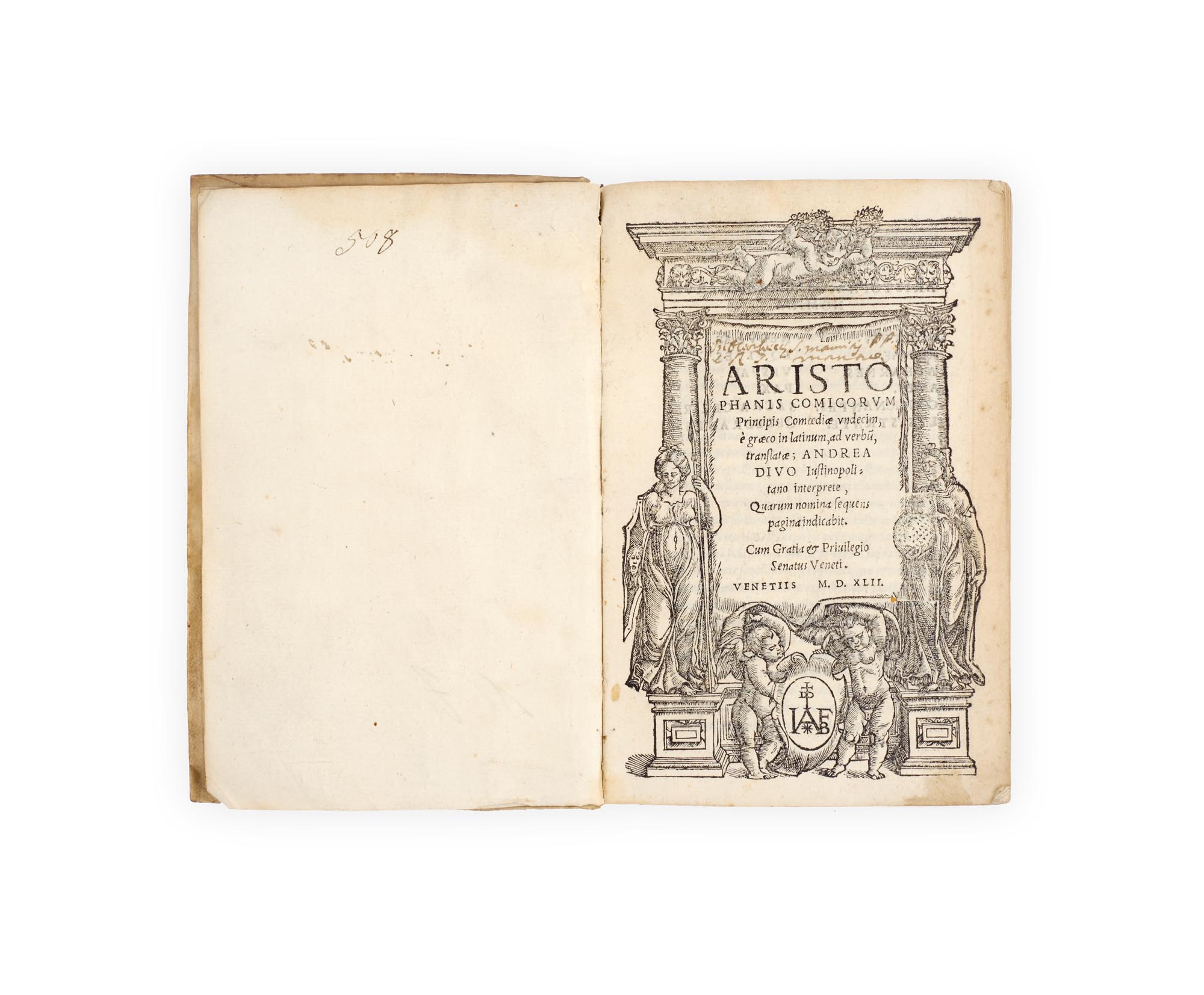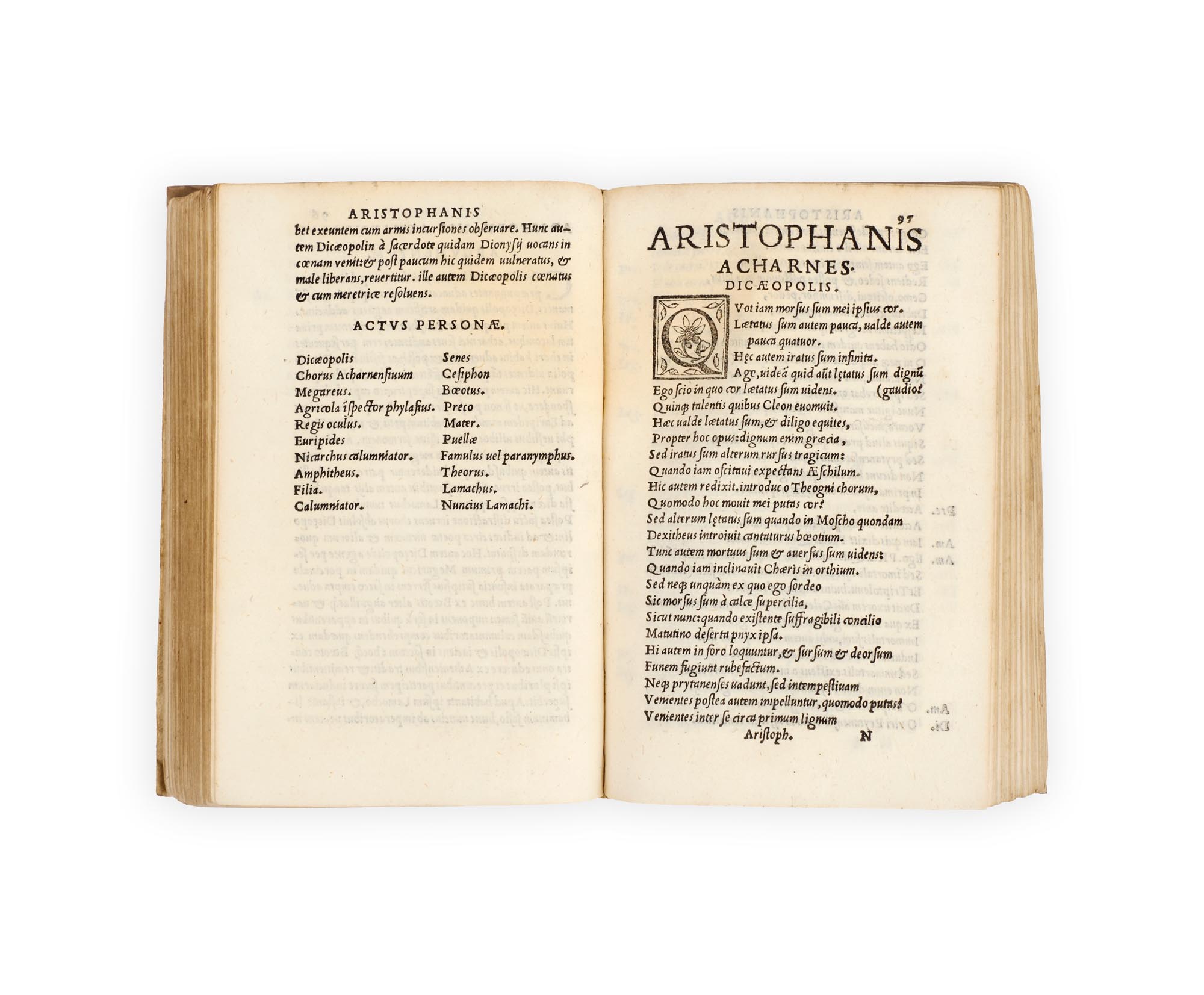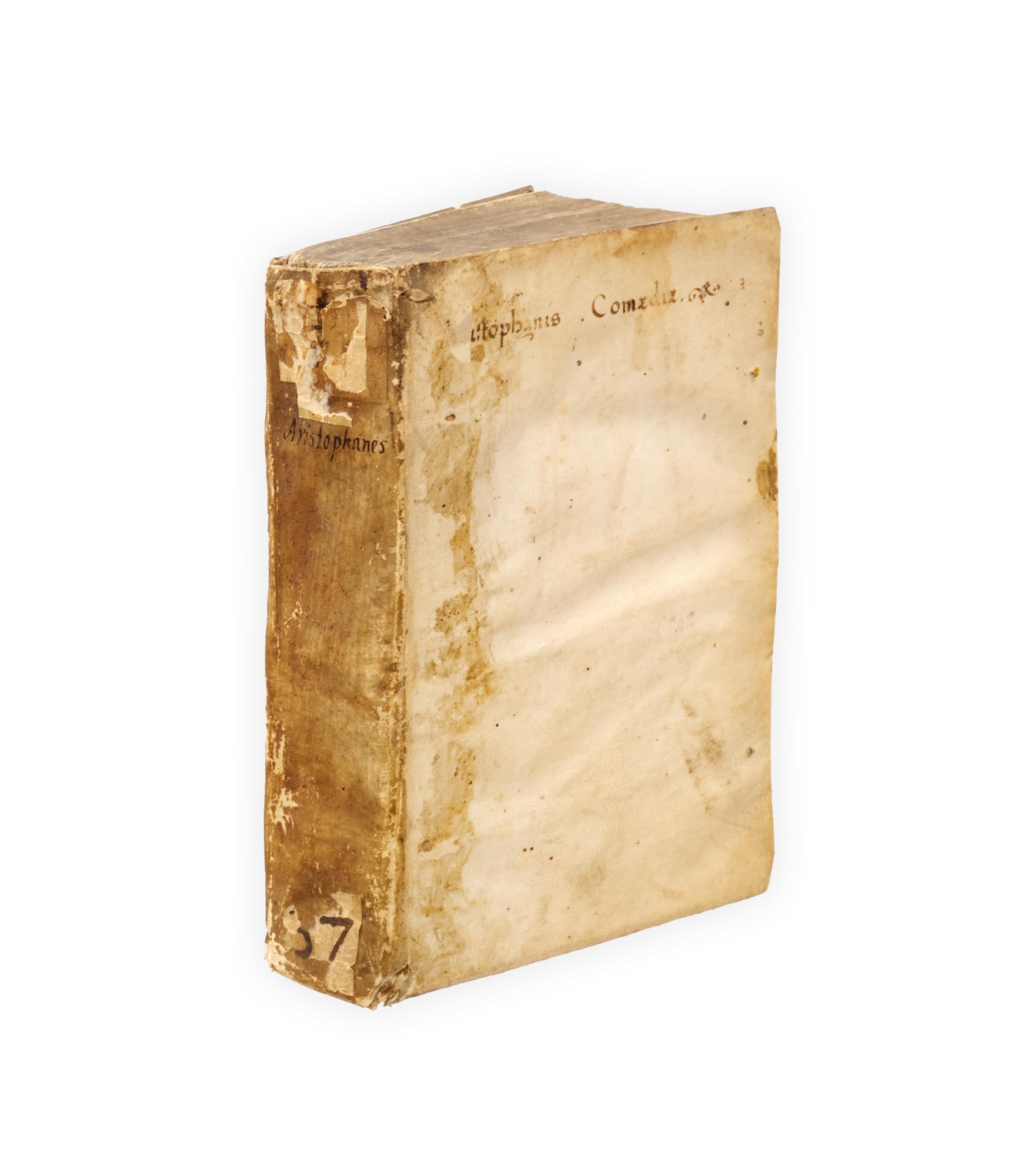


FIRST COLLECTED LATIN EDITION
ARISTOPHANES.
Aristophanis comicorum principis Comoediae undecim, e graeco in latinum ad verbu[m] translatae Andreae Divo Iustinopolitano interprete …
Venice, 1542 [colophon: apud D. Jacob a Burgofrancho papiensem, 1538].
8vo, ff. 260; title within woodcut architectural frame featuring cherubs holding a cartouche enclosing printer’s initials, woodcut printer’s device to verso of last leaf, woodcut historiated initials; some toning, light waterstaining at head of textblock, but a very good copy; in contemporary limp vellum; author and title in contemporary manuscript to front cover, author in later manuscript to spine, remains of paper spine labels to head and foot of spine, ties perished; spine stained from old glue; ownership inscription to title ‘Bibliotheca S. Mauritii PP LRJ Mantuae’ (see below).

Added to your basket:
Aristophanis comicorum principis Comoediae undecim, e graeco in latinum ad verbu[m] translatae Andreae Divo Iustinopolitano interprete …
First collected Latin edition of Aristophanes, translated from the Greek by Andrea Divo.
Published forty years after the Aldine editio princeps, this translation became an important tool for the dissemination of Aristophanes’ plays. A second edition followed in September of the same year, printed by Bartolomeo Zanetti and Melchiorre Sessa. Andrea Divo di Capodistria was a translator of Greek classics active in the mid-sixteenth century, of whom little is known. His translations, published in Venice by Burgofranco (often followed swiftly by an edition by Sessa), also included the Iliad and the Odyssey (again the first published translations in Latin), and Theocritus, and went on to be printed in Lyons, Paris, and Basel. The translations themselves are often extremely literal and in places closely follow the efforts of previous scholars; they were likely meant to be read with the original Greek text and used as a reading or translation aid – especially useful for the complex Greek of Aristophanes and Homer.
Provenance: from the library of the Theatine convent of San Maurizio in Mantua, with their ownership inscription to the title.
EDIT 16 2858; BM STC Italian (supplement), p. 16; Brunet I, col. 456; Index Aureliensis 107.649.